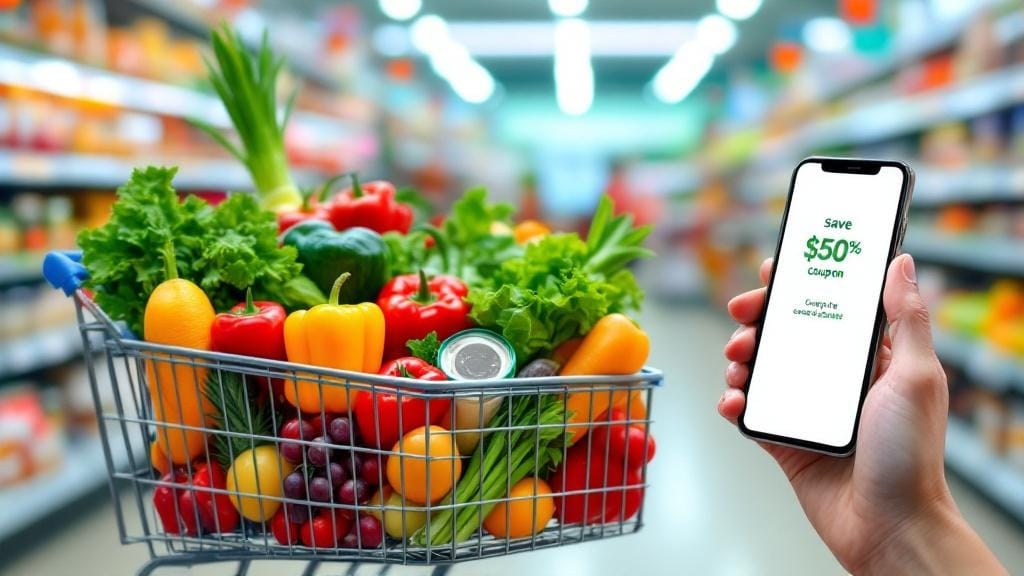Grocery shopping can be a major part of your monthly expenses, but with a little planning and the right strategies, you can cut down your costs without sacrificing quality or variety. Whether you’re feeding a family or just trying to save a few extra bucks, these budget-friendly grocery shopping tips will help you stretch your grocery budget further while ensuring you get the foods you love.
Why Budget-Friendly Grocery Shopping Matters
Before we dive into the tips, it’s important to understand why shopping on a budget is so crucial. Rising food prices, economic factors, and shifting personal finances can make it challenging to stick to a budget. However, with the right approach, you can avoid overspending and maintain a healthy, balanced diet while keeping your bank account in check.
Here’s how budget-friendly grocery shopping can benefit you:
-
Save money: Keep your grocery bills under control.
-
Better planning: With a budget, you’ll make smarter purchasing decisions.
-
Healthier choices: Planning meals and using grocery lists helps you avoid impulse purchases, often filled with unhealthy, processed foods.
Let’s dive into the best tips to make your grocery shopping more affordable.
1. Plan Your Meals Ahead of Time
Why Meal Planning Is Key
One of the most effective ways to shop on a budget is to plan your meals in advance. Meal planning allows you to create a grocery list based on the ingredients you need, ensuring that you’re only buying what’s necessary.
How to Plan Meals Effectively:
-
Start by mapping out meals for the week, taking inventory of what you already have at home. This helps you avoid buying duplicate items.
-
Choose recipes that make use of similar ingredients to reduce waste and increase efficiency.
-
Don’t forget to include simple and quick meals for busy days, saving you from ordering take-out.
A well-thought-out meal plan can significantly reduce food waste and lower overall costs.
Pro Tip: Apps like Yummly or Plan to Eat can help streamline your meal planning process.
2. Stick to a Grocery Shopping List
How to Keep Impulse Buys in Check
Once you’ve planned your meals, create a detailed grocery list based on the ingredients you need. A list will keep you focused and help you avoid buying unnecessary items. It’s easy to get distracted by tempting snacks, but sticking to your list is crucial for staying within budget.
How to Create Your Grocery List:
-
Break your list down into categories such as produce, dairy, proteins, etc.
-
Use a digital list or a shopping app that you can update on the go.
-
Review your list before heading out to ensure it includes everything you need.
By following a grocery list, you avoid wasting money on impulse purchases and only buy items that fit your meal plan.
3. Shop Smart – Take Advantage of Sales and Discounts
Where to Find Grocery Discounts
Coupons, weekly deals, and loyalty programs are all ways to save money on groceries. Many stores offer regular discounts on bulk items, or you can find digital coupons for in-store and online purchases.
Where to Find Discounts:
-
Check store flyers: Many grocery stores post their weekly sales online or send out flyers with discounts for that week.
-
Use apps like Ibotta or Coupons.com to find digital coupons.
-
Sign up for loyalty programs: Many stores offer members-only discounts or reward points for frequent shoppers.
-
Sign up for newsletters: Receive exclusive online grocery shopping discounts and promotions.
Pro Tip: Don’t forget to check your grocery store’s clearance section for items nearing their expiration date. Many stores discount these products, and they’re often perfectly fine for immediate use.
4. Buy in Bulk When You Can
Save More by Buying in Larger Quantities
Buying in bulk is one of the easiest ways to save on grocery costs, especially for non-perishable or freezable items. Bulk buying also reduces packaging waste, making it an environmentally friendly option.
Best Items to Buy in Bulk:
-
Canned goods: Beans, tomatoes, and soups have a long shelf life.
-
Rice and pasta: These staples are often cheaper when purchased in bulk.
-
Frozen vegetables: They’re usually less expensive than fresh produce and last longer.
-
Grains and cereals: Stock up on oats, quinoa, and granola.
Pro Tip: Consider joining a warehouse club like Costco or Sam’s Club for even more savings on bulk items. But be cautious about overbuying perishables!
5. Use Price Comparison Apps and Websites
How to Ensure You’re Getting the Best Deals
Price comparison tools can help you find the best price for the groceries you need. Apps and websites like PriceRunner, Google Shopping, or ShopSavvy can compare prices across different stores, ensuring you’re not paying more than you have to.
How to Use Price Comparison Tools:
-
Scan barcodes using apps like ShopSavvy to see if the product is cheaper elsewhere.
-
Check online prices: Many grocery stores now offer online shopping and will price match items if you find them cheaper on their website.
-
Look for weekly specials at different stores and take advantage of multi-buy offers.
6. Make Use of Coupons and Cashback Offers
Save Even More with Extra Savings
Coupons aren’t just for snacks and junk food. Many grocery stores offer coupons for healthy items, too. Look out for discounts on produce, dairy, and even organic options. Additionally, many grocery apps offer cashback deals, which let you earn money back for purchases made at certain stores.
How to Use Coupons and Cashback Deals:
-
Clip or download digital coupons for specific products.
-
Use cashback apps like Rakuten or Fetch Rewards to get money back on groceries.
-
Combine deals: Sometimes, you can combine manufacturer coupons with store discounts for even more savings.
7. Shop Online for Additional Savings
The Convenience and Savings of Online Grocery Shopping
Shopping for groceries online isn’t just convenient; it can also help you stick to your budget. Many online retailers offer special discounts, promotions, and even free delivery if you meet a minimum purchase amount.
Benefits of Online Grocery Shopping:
-
Exclusive online deals: Online grocery stores often offer discounts that aren’t available in-store.
-
Price comparisons made easy: Online shopping makes it easy to compare prices across stores.
-
No temptation: Shopping online means you won’t be tempted by in-store promotions or impulse buys.
Pro Tip: Check for free delivery promotions or bulk discounts to save even more.
8. Buy Seasonal Produce to Cut Costs
How Seasonal Shopping Helps Your Budget
Seasonal fruits and vegetables are usually cheaper, fresher, and more abundant, which makes them perfect for budget-conscious shoppers. Not only do you get higher-quality produce, but you also support local farmers and reduce your carbon footprint.
In-Season Fruits and Vegetables:
-
Summer: Tomatoes, zucchini, berries, and peaches.
-
Fall: Apples, pumpkins, squash, and sweet potatoes.
-
Winter: Kale, cabbage, carrots, and citrus fruits.
-
Spring: Asparagus, strawberries, and radishes.
Plan your meals around what’s in season, and you’ll save money while enjoying the freshest produce.
FAQs about Budget-Friendly Grocery Shopping Tips
1. How can I make my grocery shopping more affordable?
By planning meals, sticking to a list, using coupons, and buying in bulk, you can significantly reduce your grocery expenses.
2. What’s the best way to save on groceries weekly?
Meal planning is essential for saving money each week. Focus on seasonal produce, use price comparison apps, and take advantage of store discounts.
3. Are online grocery stores cheaper?
Online grocery stores can be cheaper, especially when you factor in discounts and free shipping. However, always compare prices and check for hidden fees.
4. How do I find grocery discounts?
Look for sales in store flyers, use grocery coupon apps, and sign up for loyalty programs. Additionally, check for cashback deals.
5. Can buying in bulk save money on groceries?
Yes, bulk buying saves money on non-perishables like rice, pasta, and canned goods. However, only buy what you’ll use to avoid waste.
6. How can I save money on organic groceries?
Look for organic items that are in-season, check for sales, or consider buying in bulk. Sometimes, discount stores also offer lower-priced organic options.








Comments (0)